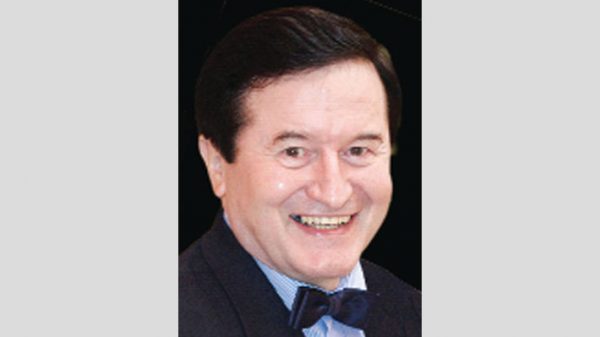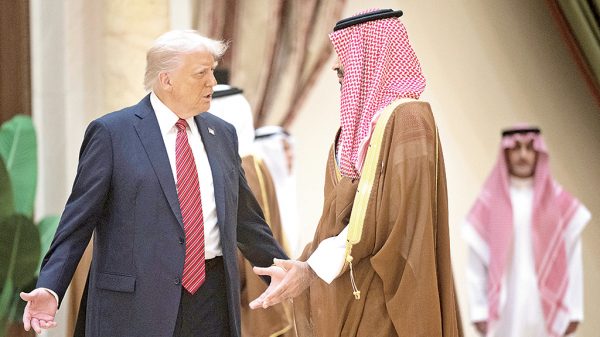Nobel Laureate Rabindranath Tagore is, no doubt, the most well-known Bangladeshi throughout the world. His world acceptance began in 1913 when he became the first non-European to win the Nobel Prize in Literature. The name has been on the tip of every university student’s tongue ever since.
It would be near to impossible to enter a public library overseas and not find at least some of his works. His name is neon-lit and up there on the top shelves of admiration with Shakespeare.While not having the benefit of Tagore’s writing genius or a Nobel gong to escalate his popularity or help push his name into universities and homes worldwide, Bangabandhu has done incredibly well. Indisputably, he is the second most widely known Bengali name throughout the world. Given time, however, those two positions could be reversed.
Bangabandhu’s Spirit Will Inspire Nations Outside the borders of Bangladesh, Bangabandhu or (Bongobondhu “Friend of Bengal”) is most probably the best known word in the Bengali language internationally. It has a certain ring to it that makes it appealing and attractive to the ear. In Bangladesh it seems to slide off the lips of young babes before they’ve even learned to say ‘mama’.
But Bangabandhu is much more than a single word in a dictionary. For its small size it packs an almighty punch. It’s come to mean democracy… it’s come to mean revolution… it’s come to standing up for one’s belief… it’s come to mean freedom.
Outside literary circles Sheikh Mujibur Rahman, Bangabandhu, the person and Father of the Nation, is unquestionably the best known Bengali of all time.
The recognition of Prime Minister Sheikh Hasina (daughter of Bangabandhu) has also advanced commendably in the public eye. She is largely responsible for bringing Bangladesh to the attention of the modern world.
My dearly departed mother always told me never to become embroiled in matters relating to politics and religion because, as she often said, ‘one man’s meat is another man’s poison’ and there are no other subjects more intimate, volatile, and personal than those. I heeded my mum’s sound advice from my teens and I’ve always been as neutral as the sun and as political as the wind, throughout my life. It sometimes amazes me how a neutral observer can see situations so, so differently.
People fight for their religion and politics. People die for their religion and politics… but, sadly, only a few actually practice the ideals of either. Most are too busy pointing and shaking their index fingers at what they perceive to be the faults of others, instead of putting their own house in order and setting a good example. They forget that when they point their index finger, three fingers point back at them.
I discovered Sheikh Mujibur Rahman almost 25-years ago. He is one of those rare and great people history occasionally bestows upon us.
I perceive him to be a member of a small, elite group of exceptionally great and talented humanitarians who have changed the course of history and made the world a much better place. Other paid-up club members include Abraham Lincoln, Mahatma Ghandi, Martin Luther King, Michael Collins, John F. Kennedy, and Nelson Mandela.
The greatest contribution any person – woman or man – can make to his or her country, ultimately, is living in a way that serves it well, and dying for it honourably to protect its sovereignty.
Bangabandhu gave his life to right a wrong, so that his nation and its people could live in freedom. In so doing he bequeathed a precious legacy to all oncoming generations.
One must remember, however, Bangabandhu did not act alone. No one man alone could achieve what history attributes in his name. The 1971 War of Independence saw many heroes and heroines emerge from both Bangladesh and India. Some proud men and women have had their names recorded for eternity for their valour and bravery, while the majority, sadly, are destined to remain unsung, unknown, and their stories never to be told.
Bangladesh is a nation that emerged from pools of blood. The precious soil that gives life to the delicious mangoes, jackfruit, rice and all the health sustaining vegetables we today enjoy, is enriched and fertilized by the noble patriotic blood of Bangladeshi heroes and heroines. Collectively, under the leadership of Bangabandhu, they broke the chains of suppression that enslaved and gave the gift of freedom to all.
We in Bangladesh, seemingly, don’t look around and ask ourselves often enough, ‘is it for this, these great people gave their lives?’ If we did, then we might think and act differently to best serve the needs of the nation. Patriotism is not confined to acts of war.
Unfortunately, Bangabandhu met his death under the most tragic circumstances. His murder robbed the people of one of its greatest assets… their greatest human treasure, but gave the country its first and foremost hero.
Of all the great men who ever lived, only four I can recollect, have given brilliant speeches that have touched the hearts and minds of generations from their rendition to present time and will live eternally: Abraham Lincoln’s “Gettysburg Address” (November 19, 1863); Martin Luther King’s “I Had a Dream” (28 August 1963); “Ask Not What Your Country Can Do For You” John F. Kennedy’s inaugural address (January 20th 1961) and the historic “Birth of a Nation” (my title) by Father of the Nation Bangabandhu Sheikh Mujibur Rahman (March 7, 1971).
Although I’m of no political affiliation whatsoever, from the moment I produced the tribute poster to Sheikh Mujibur Rahman in 2000, I’ve felt much closer to Bangladesh and the spirit of its people. I’m honoured his daughter and Prime Minister, Sheikh Hasina sees fit to display it in her home, office, the Bangabandhu Museum, and the Awami League Headquarters as well as other ministerial offices. It was also special for me when Bangabandhu’s sister Sheikh Asia Begum (R.I.P) graciously accepted a copy.
Like his epoch-making speech, Bangabandhu’s spirit will never die, his spirit lives among us all, irrespective of our political beliefs – inspiring Bangladeshis here and overseas and inspiring nations yet to be born.
Wherever there is oppression around the world, the spirit of Bangabandhu will live and inspire. And if Bangladesh contributes nothing more to the world from this day onwards, it’s already made a worthwhile and valuable contribution. Joy Bangla!
Sir Frank Peters is a former magazine and newspaper publisher/editor, who has made Bangladesh his ‘second home’.






























Leave a Reply